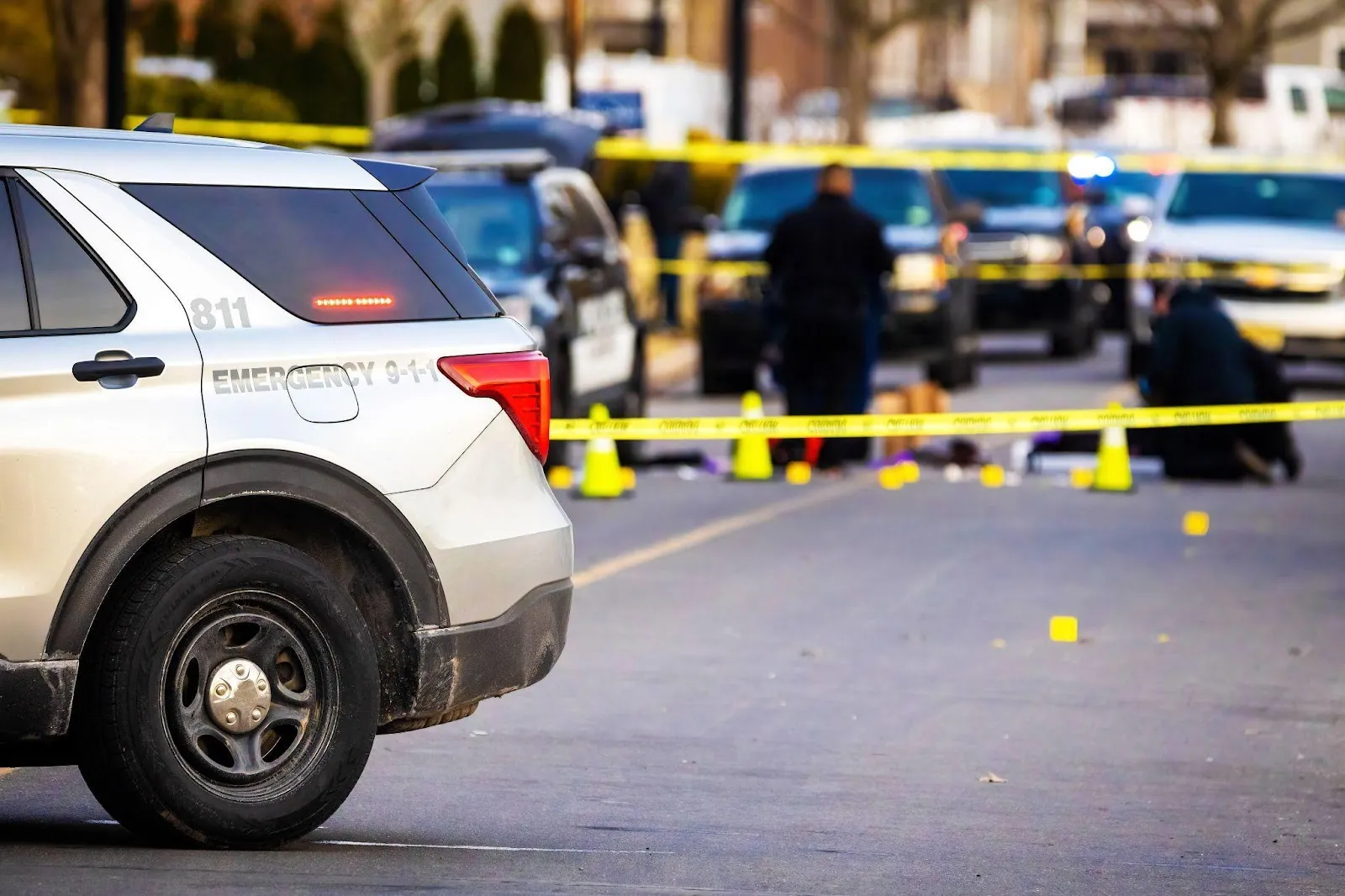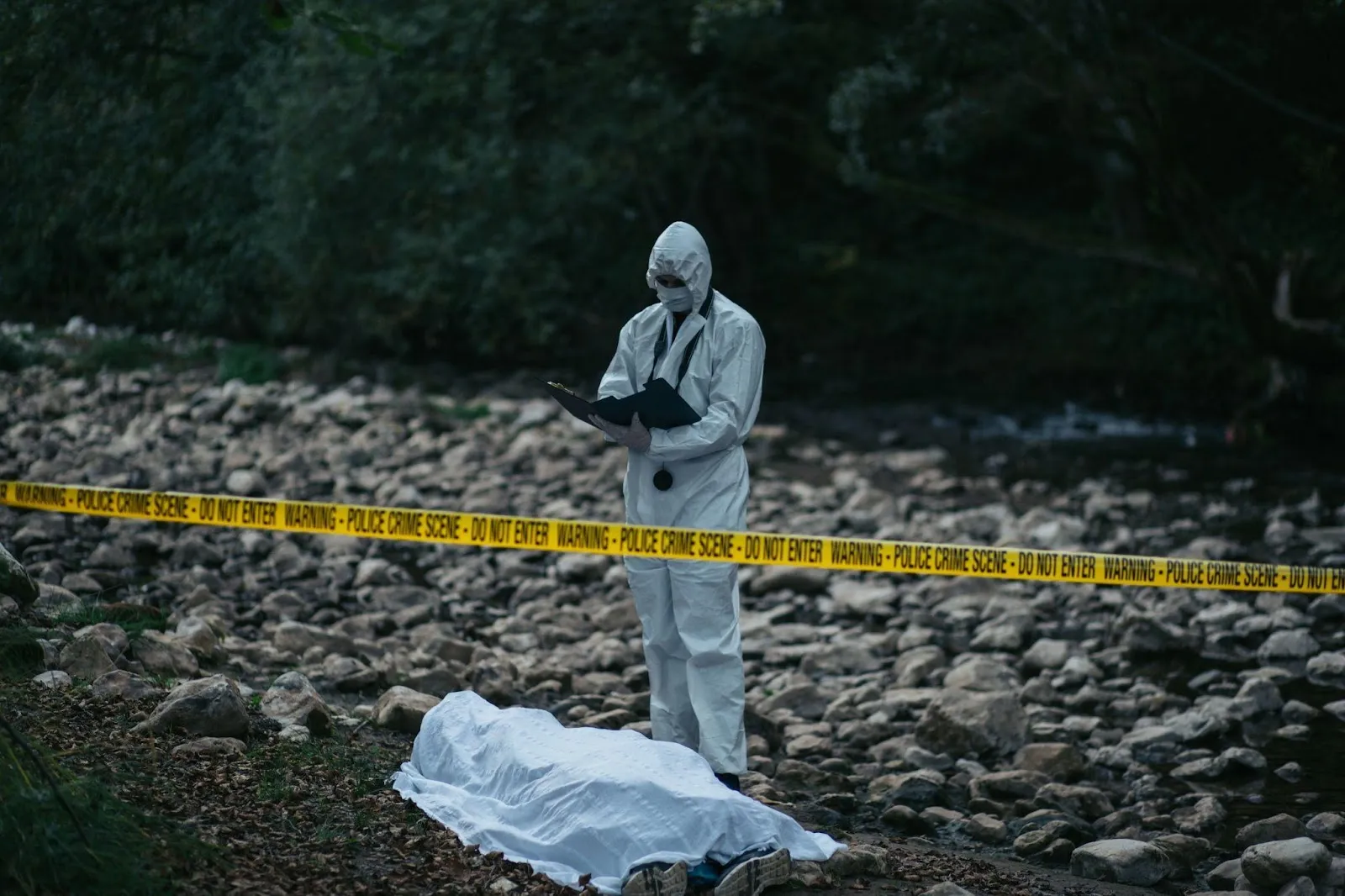 If you’ve been charged with homicide, it’s essential that you work with an attorney who’s experienced in criminal defense cases like yours and has a proven track record of winning cases in your local courts.
Working with a Fairfax criminal defense lawyer from Select Law Partners PLLC will ensure that your rights are protected and the best possible outcome is achieved. We understand the mental and emotional load of going through criminal charges, and we are here to create a comfortable, safe environment for you to develop your defense.
When you work with Select Law Partners, you can expect open and direct work with our experienced attorneys to strategize and enact the best possible defense against your charges. Call (855) 541-4867 to schedule a consultation with our Fairfax homicide defense lawyers.
If you’ve been charged with homicide, it’s essential that you work with an attorney who’s experienced in criminal defense cases like yours and has a proven track record of winning cases in your local courts.
Working with a Fairfax criminal defense lawyer from Select Law Partners PLLC will ensure that your rights are protected and the best possible outcome is achieved. We understand the mental and emotional load of going through criminal charges, and we are here to create a comfortable, safe environment for you to develop your defense.
When you work with Select Law Partners, you can expect open and direct work with our experienced attorneys to strategize and enact the best possible defense against your charges. Call (855) 541-4867 to schedule a consultation with our Fairfax homicide defense lawyers.
“Homicide” is an umbrella term for several different charges
While you might have heard of the term “homicide” regularly on television and in crime films, “homicide” is a term that applies to several charges related to taking another’s life. Here’s a deeper look into the types of charges that fall under the “homicide” umbrella.Murder
 Murder is when an individual knowingly and willingly commits a crime through which another person is either killed or experiences substantial bodily harm that later causes their death. In Virginia, murder offenses are broken down into three classes: Aggravated Murder, First-degree Murder, and Second-degree murder.
Murder is when an individual knowingly and willingly commits a crime through which another person is either killed or experiences substantial bodily harm that later causes their death. In Virginia, murder offenses are broken down into three classes: Aggravated Murder, First-degree Murder, and Second-degree murder.
Aggravated murder
Aggravated murder, a killing that occurs purposefully with premeditation or prior planning and with evil or malicious intent, is the most serious type of homicide charge. Virginia Code Sec. 18.2-31 enhances the definition of murder by adding offenses that qualify as capital murder, including, but not limited to, the six charges listed below.| Contract murder (Murder for hire) | Murder of a police officer | Murder by a prisoner |
| Willful, premeditated, and deliberate killing that’s performed for hire. | Willful, premeditated, and deliberate killing of a law enforcement officer with the power to arrest. | Willful, premeditated, and deliberate killing of a prisoner in a state or local correctional facility. |
| Multiple murders | Murder related to drug distribution | Murder of a child younger than 14 by an adult older than 21 |
| Killing more than one person in a three-year period. | Willful, premeditated, and deliberate killing during the commission of a drug offense. | Willful, premeditated, and deliberate killing of a child younger than 14 by an adult older than 21. |
Penalties for Aggravated Murder (if the defendant is over 18):
|
First-degree Murder
First-degree murder is any murder that isn’t Aggravated Murder, but it must have been committed in the following circumstances:- A killing committed by poison, lying in wait, imprisonment, or starvation
- A killing committed in the commission of, or attempt to commit, arson, rape, forcible sodomy, inanimate or animate object sexual penetration, robbery, burglary or abduction, except as provided in Section 18.2-31
- The killing was willful, deliberate, and premeditated.
Penalties for First-degree Murder:
|
Second-degree murder
This charge applies to all other murder offenses that aren’t defined as Aggravated Murder or First-degree Murder. Second-degree Murder doesn’t involve any offense with premeditation as an element. However, it does involve malice. Examples of murder in the second degree include:- “Heat of the moment” killings, those that happen without planning and in reaction to an outrageous event or occurrence
- Killings that result from extreme recklessness
- Killings when the offender intends to injure or maim the alleged victim
- Killings that result from actions in which the offender has no regard for human life, often referred to in the courts as a reckless disregard for human life
- Accidental killings that occur while the offender is committing or attempting to commit a felony other than burglary, robbery, arson, abduction, and others, with this type of second-degree murder termed “felony homicide”.
Penalties for Second-degree Murder:
|
Felony murder
 Under Virginia Code Sec. 18.2-33, felony murder is defined as the accidental killing of another person caused by the commission of a felony-level crime. Unlike aggravated murder, a felony murder charge doesn’t require knowing that someone was killed, nor does it require the intent to kill.
Under Virginia Code Sec. 18.2-33, felony murder is defined as the accidental killing of another person caused by the commission of a felony-level crime. Unlike aggravated murder, a felony murder charge doesn’t require knowing that someone was killed, nor does it require the intent to kill.
| Examples of felony murder |
| In the middle of an armed bank robbery, a customer trips while trying to get to safety. The customer breaks their neck in the fall and dies. The robber could face a felony murder charge in addition to robbery charges. |
| The owner of an abandoned house intentionally lights the property on fire in order to collect insurance. The owner is unaware a squatter is in the house, and the squatter dies in the blaze. The owner could be liable for felony murder even though they were unaware of a person inside. |
Penalties for Felony Murder:
|
Manslaughter
Manslaughter is a legal term applied to killings that may be willing and deliberate but lack the element of malice. Examples of manslaughter include the killing of another during a mutual physical altercation, or a killing committed in the heat of passion after the offender was legitimately provoked. Manslaughter can be broken down into two parts: voluntary and involuntary.| Voluntary manslaughter, aka “Heat of passion” | Involuntary manslaughter |
| Definition | Definition |
| Non-premeditated killing of one person by another without malice. For instance, killing someone in mutual combat or after being provoked. | Unintentional killing of another person during an unlawful act. For instance, driving drunk and hitting another driver. |
| Penalties | Penalties |
|
|
Possible defenses to a homicide charge
For the Commonwealth Attorney to successfully convict a person accused of any of the above homicide charges, they must prove beyond a reasonable doubt that the defendant is guilty of each and every element of the crime. During the legal process, the accused has the right to a defense against the charges leveled against them to ensure that innocent persons aren’t charged with crimes they didn’t commit. While the unique facts and circumstances of each case will be unique, the following are several common defenses raised in homicide cases.1. Self-defense
Persons who use self-defense in their case are asserting that while they did commit the act for which they’re being charged, committing that act was necessary to protect against violence or the threat of violence. Self-defense can be used for a variety of charges but is most often presented as a defense to violent crimes like assault, battery, homicide, wrongful wounding, or domestic violence. A successful presentation of self-defense includes evidence that the defendant felt they had no choice but to defend themself or others, and that the force they used was reasonable compared to the force they were confronted with. For example, shooting someone that is aiming a gun at you may be self-defense, but shooting a person who is unarmed likely isn’t.2. Alibi
An alibi is evidence that you couldn’t have committed the crime because you were in another location at the time the crime was committed. An alibi defense can be presented by eye-witnesses, store receipts, surveillance cameras, GPS tracking on smartphones, and other verifiable sources. This evidence would tend to support the position that you did not commit the crime because you weren’t even present for it. For example, if you were sitting at home on your computer sending emails when a murder occurred that you’ve been accused of, evidence of your emails at that time, footage of you from your home security system, or the testimony of someone else in your home with you, could all provide an alibi that could be valuable in being acquitted of the charge.3. Sub-standard investigation
Law enforcement personnel and Commonwealth Attorneys are under increased pressure to produce results in cases involving a deceased victim. A possible homicide can be newsworthy, and the family of the deceased will expect law enforcement to find a killer and hold them accountable. This increased pressure can result in law enforcement and Commonwealth Attorneys cutting corners and chasing the first suspect they see instead of doing their due diligence. A zealous defense will point out deficiencies in the procedures the police used in coming to their suspect and will alert a judge or jury to possible missed evidence that could have changed the course of the investigation. In some circumstances it may be necessary to hire an expert witness in forensics or DNA to diagnose the flaws in an investigation.4. Unreliable witness testimony
Sometimes the Commonwealth Attorney will rely upon questionable witnesses to try to secure a conviction. When more than one person is implicated in a killing, the threat of prosecution or life in prison can convince suspects to turn on each other and lie if they think it will help them save their skin. Likewise, inmates in jail or prison looking for a break will go to lengths to concoct believable stories they can tell Commonwealth Attorneys that might help them secure a conviction in exchange for some leniency. An effective criminal defense attorney can lay out the ulterior motives behind these witnesses, exposing plea deals between star witnesses and the prosecution, or flushing out inconsistencies in their stories.5. A false confession
In the last two decades, DNA has been used to review countless homicide cases in which a person was tried and convicted which has resulted in the exoneration of hundreds of innocent people. False confessions were part of hundreds of those convictions. No matter how mature or intelligent a person is, when they are put in the stressful position of an arrest and grilling by law enforcement officers, they often say things they don’t mean. The best thing to do if you are being questioned by law enforcement about a homicide is to ask for an attorney to be with you for any questioning. If you have already made the mistake of saying something you regret, you should seek a criminal defense attorney who is willing to attack the “confession” head on and point out any coercive techniques used by law enforcement. If law enforcement officers arrest you and fail to read you your Miranda rights before questioning you, your answers to those questions may be thrown out on a motion by your attorney.6. Unlawful search and seizure
American citizens are protected by the Fourth Amendment of the Constitution which protects against unreasonable searches and seizures. Sometimes evidence that looks bad for your cause is obtained by law enforcement illegally. While Miranda warnings are required to inform you about the potential danger of making statements to the police, law enforcement is under no obligation to tell you that a requested search would otherwise be illegal and/or unconstitutional. Police are bound by the Fourth Amendment as follows:- Law enforcement must have reasonable cause to pull you over
- They often must have a search warrant to search your home.
- The police can’t arrest or hold a person in custody without probable cause
- Law enforcement can’t search you for drugs or weapons unless they have probable cause.



